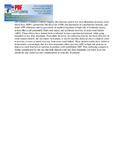| dc.description.abstract | The currently available evidence suggest that diuretics and/or low dose dopamine increases renal blood flow (RBF), glomerular filtration rate (GFR) and natriuresis in experimental animals, and limits ATP utilisation and oxygen needs in nephron segments at high risk of ischaemic injury, actions that could potentially limit renal injury and accelerate recovery in acute renal failure (ARF). These effects have indeed been confirmed in most experimental animals while using mannitol or low dose dopanime. Frusemide, however, for unknown reasons, has been effective in some animal models, but not others. In humans, it can be said that diurectics have a limited value to prevent, reverse or speed recovery from acute renal failure. Most clinical studies have failed to demonstrate convincingly that low dose dopamine either prevents ARF in high risk patients or improves renal function or outcome in patients with established ARF. This confusing scenario is further complicated by the fact that both diuretics and low dose dopamine can result in severe metabolic and cardiovascular complications in critically ill patients | en |

